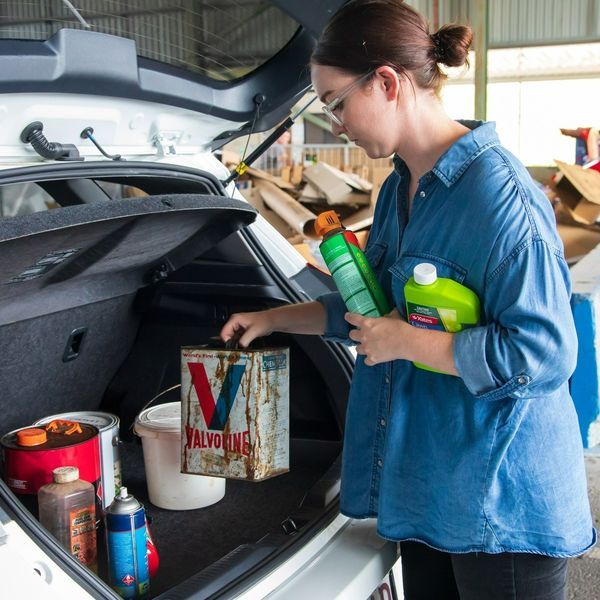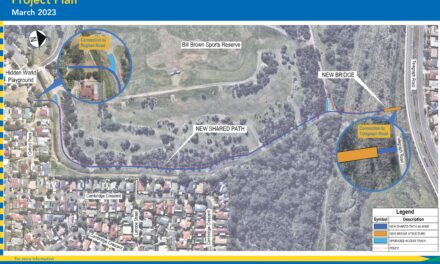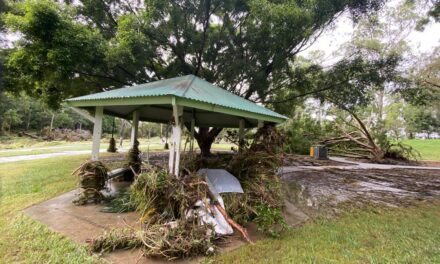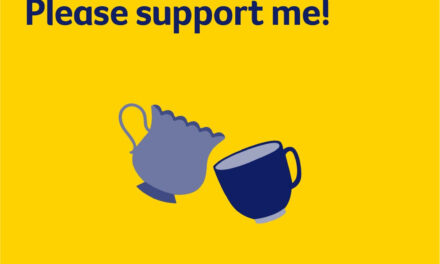Lord Mayor Adrian Schrinner said Council had now been undertaking free hazardous waste days for 15 years, which helped to educate residents and keep Brisbane clean and green.
“Since 2008, residents have taken 466 tonnes of hazardous waste to our four resource recovery centres – the equivalent of 50 Council buses being diverted away from our landfill and waterways,” Cr Schrinner said.
“Disposing of hazardous materials that are flammable, corrosive, explosive, toxic or poisonous at these free drop-off days significantly reduce the impact on our city’s precious environment.
Residents have a unique opportunity to talk to an expert, identify unknown liquids or materials and understand why these should not be put in general waste, recycling bins or waterways.”
During last financial year, the volume of household hazardous waste, including pool chemicals, pesticides, engine oil and fire extinguishers, dropped off during hazardous waste days increased 20 per cent.
Cr Schrinner said the impacts of incorrectly disposing of hazardous waste can also lead to explosions and fires in bins and collection vehicles which put our environment, services, and society at risk.
“This program not only increases safety and education for residents, but also saves on costs related to collection fires,” he said.
“Our drivers have been forced to dump whole loads of collected rubbish on the side of the road to avoid them catching fire.
If you are unable to make it to a drop-off day, you can still drop off your hazardous waste 365 days of the year at any of our four resource recovery centres.
Council is committed to continuing to provide this service into the future, as we continue our mission towards a cleaner, greener Brisbane.”
Council’s household hazardous waste drop-off days will run on the following dates and locations:
- Ferny Grove resource recovery centre on Saturday 3 June from 7.30am to 3.30pm
- Chandler resource recovery centre on Saturday 2 September from 7.30am to 3.30pm
- Nudgee resource recovery centre on Saturday 2 December from 7.30am to 3.30pm.
For more information, download the Brisbane Bin and Recycling app, visit www.brisbane.qld.gov.au or contact Council on 07 3403 8888.
Residents must ensure:
- All household hazardous waste items being disposed remain in their original containers and are not mixed
- Be aware that a 20-litre limit per customer per visit applies for each chemical or product, except for paint and engine oil (hydrocarbon oil) where up to 100 litres per customer per visit is accepted.
- Due to workplace health and safety requirements, paint and oil containers must not exceed 20 litres per container.
A full list of accepted materials is included below.
Kitchen
- Insect sprays
- Floor care products
- Metal polish with solvent
Garage
- Antifreeze
- Car batteries
- Brake fluid
- Motor, sump and gear oil
- Petrol and marine fuel
Garden
- Fungicide/insecticide
- Herbicides and weed killers
Other
- Batteries (household and lead acid batteries)
- Compact fluorescent light bulbs
- Dry cleaning solvents
- Electronic waste
- Fibreglass resins
- Fire extinguishers
- Fluorescent light bulbs and tubes
- Gas bottles (must be empty, a maximum of six bottles of up to nine kilograms)
- Ink cartridges
- Paints and mediums (maximum of 20 litres per container and 100 litres per customer)
- Photographic chemicals
- Smoke detectors
- Swimming pool chemicals





